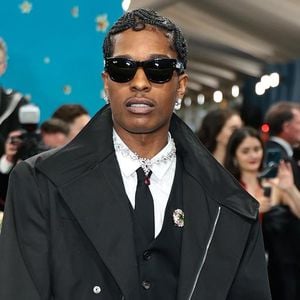CHICAGO — Illinois Governor JB Pritzker has taken decisive action to block individuals who participated in the January 6, 2021, attack on the U.S. Capitol from obtaining positions within state government. This move directly counters former President Donald Trump’s recent pardons of more than 1,500 participants, demonstrating Pritzker’s commitment to uphold the values of Illinois.
On January 20, 2025, Pritzker issued a directive to Raven DeVaughn, director of the Illinois Department of Central Management Services, responsible for state hiring, mandatorily considering participation in the Capitol riot as grounds for disqualification from state employment. Describing the January 6 actions as “infamous and disgraceful conduct,” Pritzker emphasized, “No one who attempts to overthrow a government should serve in government.”
Pritzker’s letter underlined the importance of aligning the state workforce with principles of honesty, integrity, and loyalty to the taxpayers. According to Pritzker, the actions of the rioters “attacked law enforcement officers protecting people in the Capitol, disrupted the peaceful transfer of power, and undermined bedrock principles of American democracy.” These statements reflect the governor’s view of the insurrection not only as unlawful but also as fundamentally at odds with the mission of the state itself.
The directive is notable as it emerges as one of the most direct challenges to Trump’s authority since the former president took office. While Trump pardoned numerous individuals involved, Pritzker’s action signals resistance and sets the stage for potential legal entanglements. Despite Trump’s claims to rectify what he termed “a grave national injustice,” Pritzker’s initiative appears to be geared toward preserving the integrity of state governance.
The directive's release is expected to garner significant media attention, especially as it highlights Pritzker’s growing political rivalry with Trump. Recognized for his criticism of Trump’s policies, especially those implemented during the COVID-19 pandemic, Pritzker focuses on opposition tactics by leveraging state employment regulations as means of asserting authority.
This policy may resonate well with many Illinois residents wary of the January 6 events. Recent polling reflects widespread disapproval of Trump’s pardons, particularly concerning individuals who participated aggressively against law enforcement during the insurrection. Pritzker’s stance aligns with those sentiments, reaffirming the commitment to uphold democratic ideals.
Following the release of Pritzker's directive, the Illinois Republican Party Chair Kathy Salvi dismissed the governor’s move as mere “grandstanding.” She suggested it stemmed from Pritzker’s personal political ambitions rather than genuine concern for the state. Salvi criticized Pritzker, stating, “Over the last two weeks, Gov. Pritzker has shown us he is vengeful and egotistical.”
Further voices from the Illinois Freedom Caucus characterized Pritzker's action as “Trump Derangement Syndrome,” arguing he ought to focus more on pressing state issues, such as the looming $3 billion budget deficit. Their criticisms suggest Pritzker's directive may alienate some constituents who feel more immediate economic troubles should take precedence.
Legally, this decision by Pritzker could provoke challenges, especially as participants of the January 6 uprising have been at the center of numerous discussions around civil rights and the ramifications of federal pardons. Pritzker’s careful navigation through the state personnel code is viewed as his best defense against any legal backlash, framing the issue within the scope of state law. His letter directly concluded with the assertion, "Our State workforce must reflect the values of Illinois and demonstrate honesty, integrity, and loyalty to serving the taxpayers."
Since the capitol riot—which led to injuries among police officers and substantial property damage—Pritzker’s firm stance marks the beginning of what could be defined as both political and legal ramifications for future governance as well as the broader national discourse surrounding the events of January 6. While Trump's political endeavors continue, Pritzker seems to be positioning himself as not only the defender of Illinois values but also as significant player on the national stage, potentially eyeing future presidential possibilities.
The fallout from January 6 still reverberates, and as Pritzker takes this stand, observers will be watching closely to see how it influences national political dynamics and what repercussions it could have for state and federal relations.



